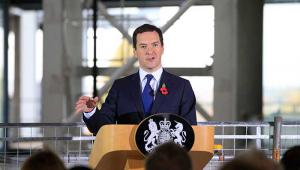Spending cuts are overshadowing public sector reform as ministers try to agree departmental budgets with the Treasury in advance of October’s CSR
Now it’s for real. ‘This is the time the rubber hits the road,’ Prime Minister David Cameron vividly told his Cabinet colleagues at their first meeting after the holidays on September 7. As ministers and civil servants return to their offices, the mood in Whitehall is more sombre. Options for spending cuts prepared in July are no longer possibilities but are looming as concrete decisions.
But it’s not just whether, and how, to meet the Treasury’s targets for reduced spending. There are also increased political worries about an unrelieved austerity message. If there is pain, there also has to be hope — what is it all for?
This is not merely an economic question, in terms of reducing the level of public borrowing and debt to affordable levels. It is also political – all the emphasis on reducing the size of the state has overshadowed reform of services.
The Spending Review will be on October 20. That is not long when you take into account the party conferences. Detailed department papers on cuts submitted in July have been analysed by the Treasury and meetings are under way at the official level.
The Treasury’s aim is to settle the budgets of a number of smaller departments within the next fortnight.
As in previous reviews, the Treasury is keen to set an example, and has already made it known that its staff numbers will be cut by around a quarter over the next four years.
That reflects a much tighter concentration of its role on public spending, taxation and finance than during the Gordon Brown years. (And as part of the reversal of the Brown era hyperactive approach, the Pre-Budget Report is to be replaced by a more modest Autumn Statement, largely consisting of updated economic forecasts from the Office for Budget Responsibility.)
There is already talk that Justice Secretary Kenneth Clarke might confirm his department’s plans before long. He has always been tough on public spending, both in his days as a minister and as chancellor in the mid-1990s. It will, however, be very hard to cut back planned spending increases on prisons and legal aid.
The inducement for ministers to confirm plans early is that they can avoid having their bids adjudicated by the Public Expenditure Committee, the so-called Star Chamber, which is dominated by the Treasury and other ministers from the centre. This includes the likes of the chancellor and William Hague in his role as first secretary of state. Any ministers who have settled, such as Clarke, will be included.
Such committees have existed in the past in various guises: the late Willie Whitelaw was the spending arbitrator for much of the Thatcher years. The Treasury dominance of the new body is to avoid any splitting of differences, which can ratchet up the total.
The hardest cuts will be Work and Pensions and Defence, not least because they are headed by ministers with a strong appeal on the Tory Right, Iain Duncan Smith and Liam Fox.
Duncan Smith wants to reform the benefits system but, initially, that costs money, while Fox will not want to be seen to be weakening Britain’s armed forces.
Some civil servants and even ministers are already muttering that the spending targets will require a massaging of the figures. The proposed squeeze on spending would be the largest among the main G7 economies.
Yet, as the magnitude of the cuts sinks in, ministers are looking at ways of putting over a positive message – not least because they want to make announcements to enthuse the party faithful at their conferences over the next month.
Plenty of ideas and initiatives are bouncing around: the creation of ‘free’ or independent state schools; shifting power to local GPs in health, electing police commissioners; and the whole gamut of voluntary and local initiatives summed up in the Big Society agenda. Yet all these are within the context of squeezed budgets.
Indeed, there is a conflict between many of the aspirations of the Big Society and already announced cuts in the budgets of central and local government earmarked for helping voluntary bodies.
Cuts – and protests about cuts – are likely to trump reform in the headlines this autumn.
Peter Riddell is a senior fellow of the Institute for Government










